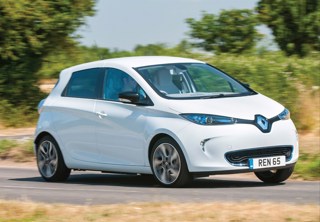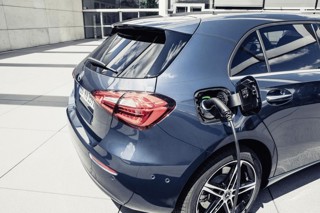Plans for publicly owned community car-sharing clubs, putting 30,000 electric cars on UK streets, have been revealed.
Shadow business secretary Rebecca Long-Bailey says under a Labour Government community car clubs would be rolled out across the UK and provide a fleet of low carbon electric cars that can be rented through an app.
The £300 million initiative is part of a wider plan by Long-Bailey to increase the adoption rates of plug-in cars under a Labour government.
The community car clubs would be owned and operated by community-level co-operatives and local authorities. A national car club will support their set up with expertise and funding for the initial costs, and will procure domestically-built electric cars to support local manufacturing.
Long-Bailey says the scheme will help the UK tackle the climate emergency by reducing emissions, the number of privately-owned cars on the road, and journey numbers.
She explained: “Labour’s community car clubs will put collective car transport in the hands of communities, reducing emissions, improving air quality in urban areas and boosting domestic manufacturing.
“As part of our green industrial revolution, clean air has to be a priority – and that means making electric car-sharing available to everyone.
“Labour will ensure every community has its own electric car-sharing club – owned and controlled by the people.’’
Phil Makinson, chief commercial officer of peer-to-peer car rental company Hiyacar, agrees that there is “huge value” in car sharing across the UK and it should not be limited to big cities.
“Hiyacar already enables communities across the UK to share the 30 million already owned vehicles which sit idle for an average of 23 hours a day,” he said.
“The potential goes way beyond personal use with huge efficiencies to be realised if businesses and local councils free-up idle cars for wider use.”
For example, Hiyacar has been working with a council to help employees share cars with each other for work usage and it works with property developers to help residents share cars or use ones owned by the property.
Makinson continued: “Not only does sharing help provide a valuable service to the local community, it helps to reduce the overall number of cars on the road.
“We are especially focused on supporting usage of electric vehicles as they are best suited to short, urban journeys.
“Any scheme that provides more EV supply should help the needed development of infrastructure and visibility, to drive usage by the public.
“We welcome any scheme which supports car sharing to ensure maximum usage from the car to benefit the community.
“The question for this policy, if it is to be implemented, is how to deliver maximum benefit for minimum investment and whether there is a need to re-invent the wheel.
“Well-established platforms, such as Hiyacar, already provide car sharing services that could help to deliver this demand.”
The £300m cost of the scheme will include a £50m investment into financing and procuring the digital technology, mobile apps, data analysis, start-up costs and systems management to support local community car clubs.
A further £250m would go towards purchasing electric vehicles to lease to community car clubs, which the Labour Party claims would catalyse a further £500m in income derived from leasing electric cars to community car clubs. This equates to 30,000 vehicles at £25,000 per vehicle, it says.
























Login to comment
Comments
No comments have been made yet.